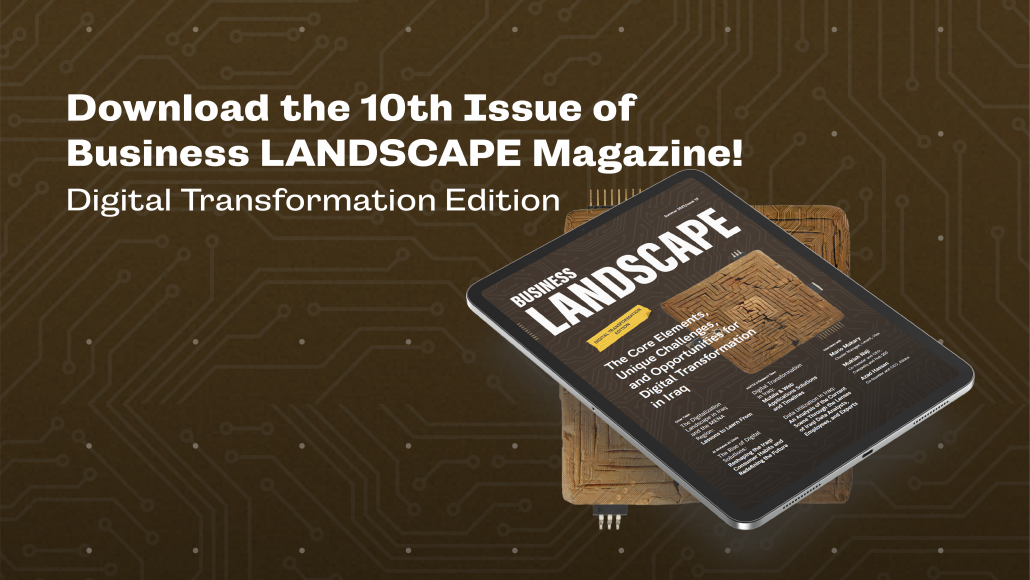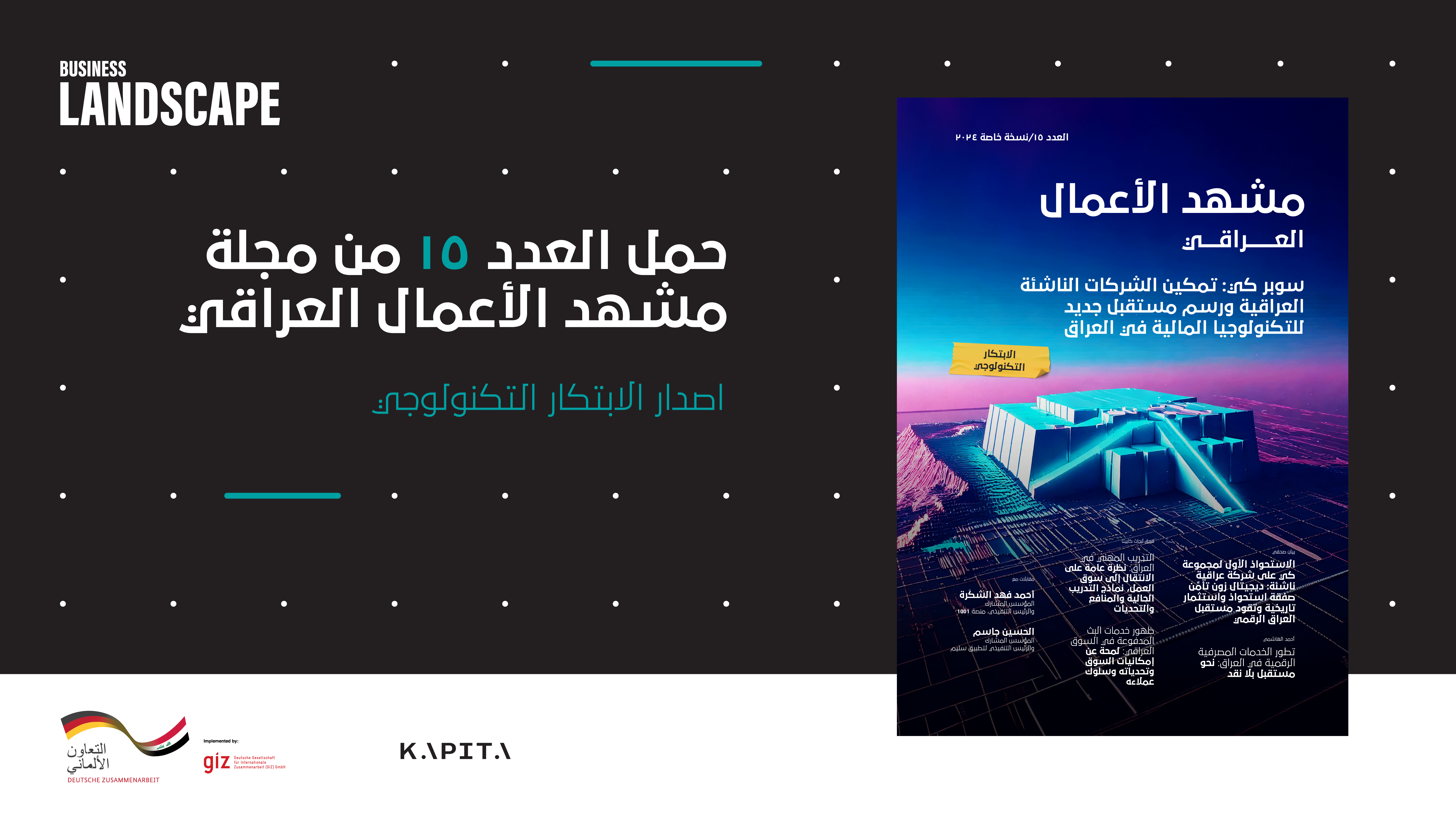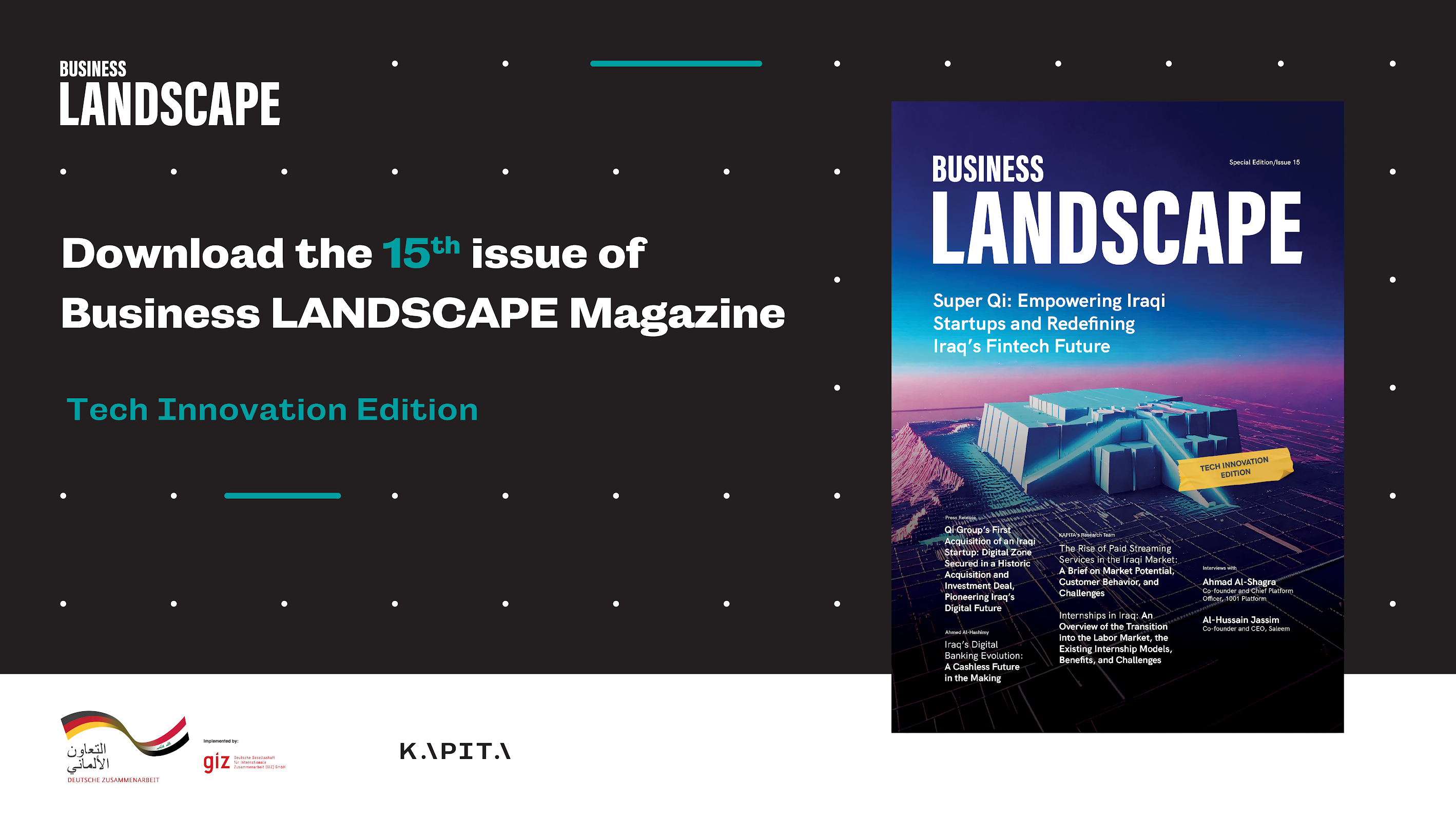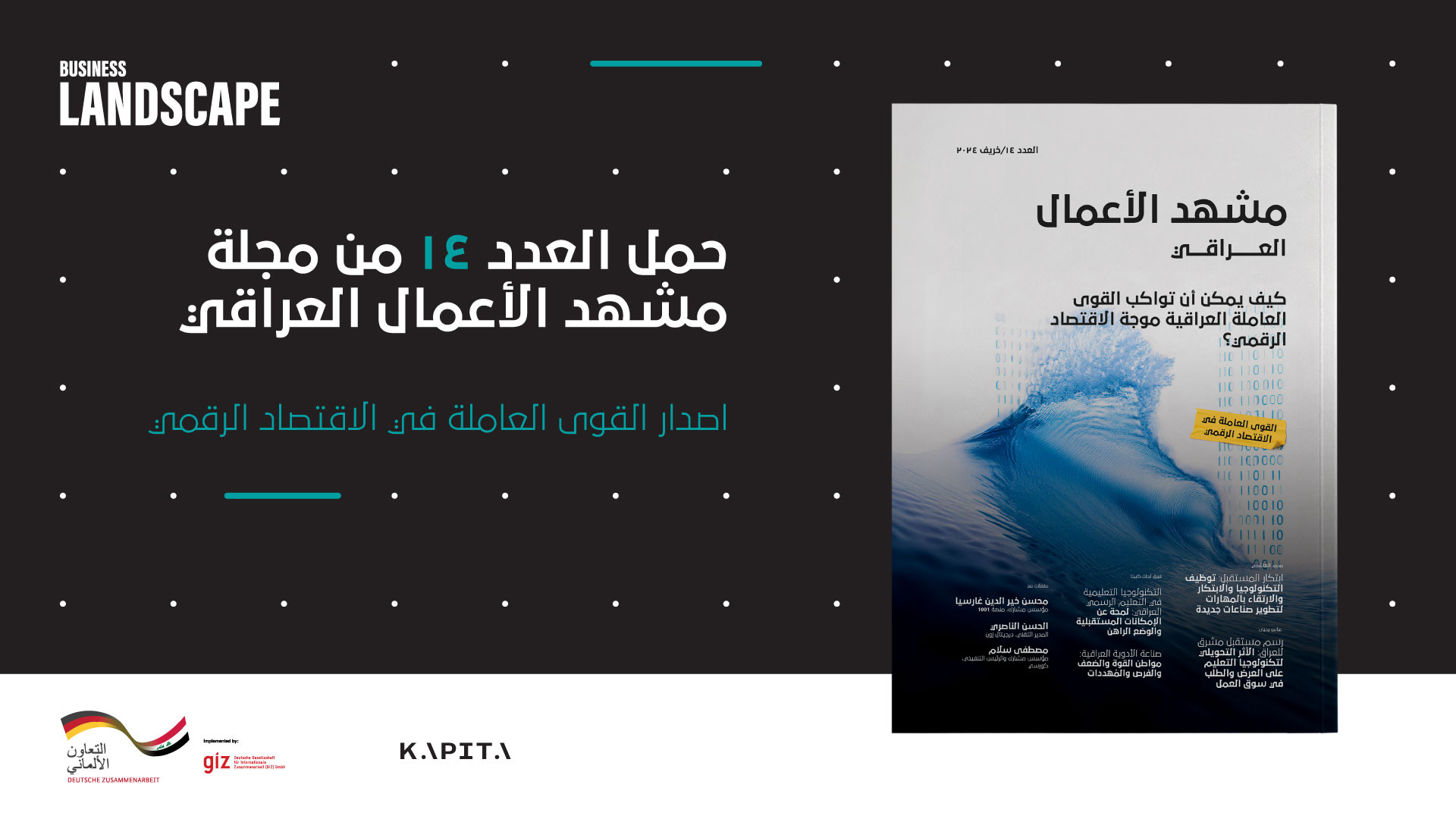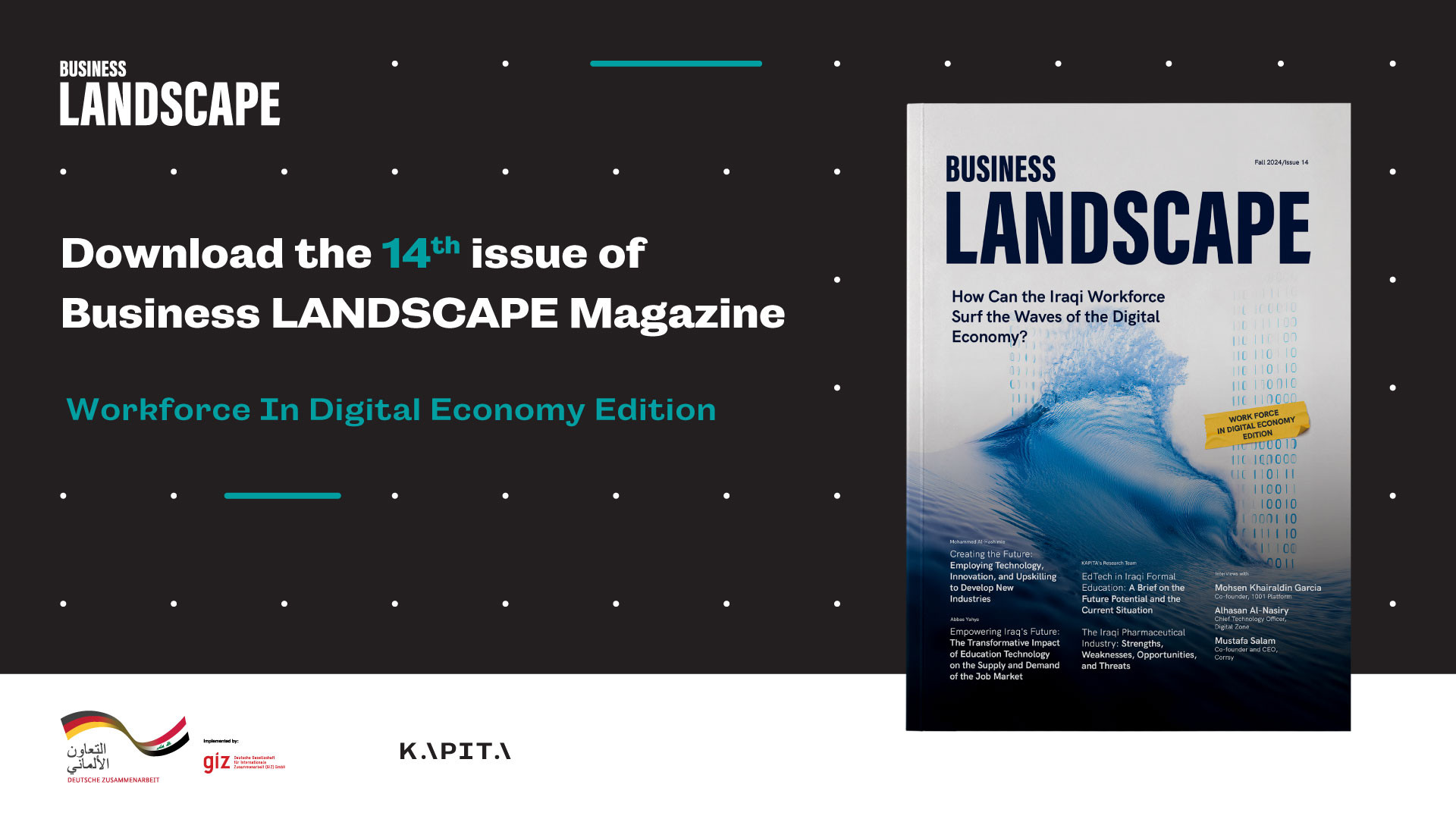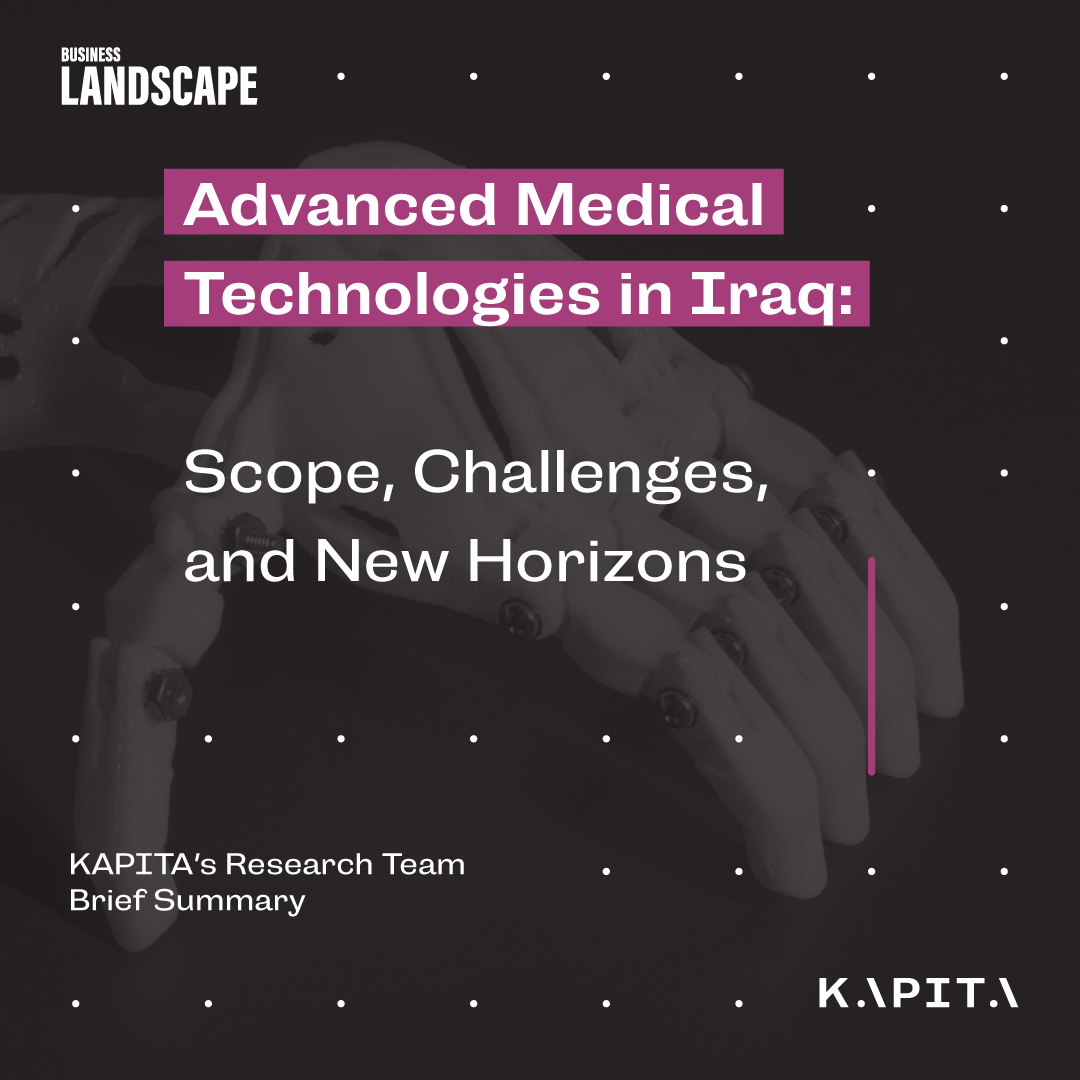We are beyond thrilled to introduce the milestone of the 10th edition of Business LANDSCAPE magazine, a quarterly publication that aims to shed light on the Iraqi private sector, its challenges, developments, investments, and entrepreneurial scene and serves as a platform for the Iraqi ecosystem.
In this edition, we explore the transformative power of digitalization in Iraq.
In a world rapidly driven by technology, Iraq's digital transformation journey faces unique challenges like limited infrastructure and regulatory frameworks; the nation's gradual adoption of technology is evident. Rather than expecting an overnight revolution, it's crucial to recognize that digital transformation is a step-by-step process, with each advancement contributing to the nation's progress.
Since it is summer, it might be the perfect timing to examine the tangible impact of digital transformation, this is the time when Iraqis take their vacations. Citizens can now apply for their e-passport through a platform, pay the fees with their card, obtain their visa, book their flights, and make their hotel bookings through mobile applications, which makes traveling a hassle-free experience. The impact of digital transformation goes beyond travel. Telecommunications have undergone significant changes, with e-SIMs now available, enabling users to switch to foreign SIM cards seamlessly.
We investigate how this shift has impacted consumer habits and redefined the needs in the market that, led to the rise of many digital solutions such as e-commerce platforms like Tamata, quick-commerce like Taza, and payment solutions like Tabadul platform. It also revolutionized media consumption and the entertainment market. In addition, it heightened efficiency and accuracy in various sectors. For instance, the traditional university admissions system has given way to the digital private education admissions system. We take a look at how digital transformation has accelerated the adoption of a customer-centric and spurred demand for B2B services that facilitate data-driven decisions.
Furthermore, KAPITA’s Research Team highlights the role of data utilization in the digital transformation and investigates the challenge of data scarcity and skills gap. We collected insights from Iraqi data analysts, employees, and experts to shed light on the reality of harnessing data for innovation and decision-making in the Iraqi context. Moreover, we present a timeline of the digital Transformation in Iraq and the available mobile and web applications. And we follow a step-by-step guid on how to build a mobile application for the Iraqi market.
Our series of interviews include visionary leaders such as Mario Makary, Cluster Manager at Visa Levant, told us about the digital payments landscape in Iraq, the potential of fintech, and Visa’s initiatives and strategies to ensure financial inclusion and a safe transition to a cashless society.
Muklah Naji, Co-founder and CEO of Computiq and Hub 200, discussed the importance of equipping the youth with digital skills and the essential role of building a community, the current challenges that are facing digital transformation in Iraq, and the steps to accelerate it.
Azad Hassan, Co-founder and CEO of Eduba, shared his journey and the challenges he faced while building Eduba, an Edtech super app, the critical role of Edtech in transforming the education scene, and its reflection on the adoption of digital transformation.
As Iraq embraces the era of digital transformation, there is an immense potential to be unlocked. The journey may present challenges, but it also presents countless opportunities for growth, innovation, and prosperity that can empower and transform the reality of Iraq.
